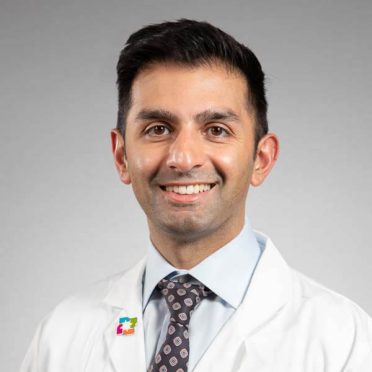‘Tis the season for new year’s resolutions. And at the top of the list for most people – losing weight.
But for some, routine diets and exercise alone can’t get the job done.
“Obesity is a chronic condition and not a function of overeating or lack of exercise,” says Kamraan Madhani, MD, bariatric medicine specialist with the Hartford HealthCare Medical Group in Southington and Plainville.
Medical weight loss offers patients – who may not necessarily be ready for bariatric surgery – the chance to work with a weight loss expert to develop a tailored weight loss plan.
What exactly is medical weight loss?
You’ve probably heard of surgical weight loss, which often includes procedures such as gastric bypass. But, surgery isn’t for everyone and that’s where medical weight loss becomes an option.
“Medical weight loss includes a multimodal approach to the patient,” says Madhani. “We focus on lifestyle interventions, such as a foundation for healthy living, physical activity and attention to nutrition. In some cases, we discuss the use of medication, which can assist patients in their weight loss efforts.”
Why should I consider medical weight loss?
“Many people do not realize the significance of excess body weight in the United States,” says Dr. Madhani.
It’s estimated that a third of Americans are considered obese, which can lead to heart disease, stroke, diabetes, sleep apnea and certain types of cancers.
> Want more health news? Text StartHere to 85209 to sign up for text alerts
How do I know if I qualify?
Qualifying for medical weight loss is based on your Body Mass Index (BMI), which is a measurement of your body fat based on height and weight. Dr. Madhani says that in order to qualify for medical weight loss, a person must have one of the following:
- A BMI of 27 or higher with health issues, such as high blood pressure, sleep apnea and diabetes.
- A BMI of 30 or greater regardless of the existence of weight-related health issues.
> Related: You May Be Eligible for Weight Loss Surgery Based on New Guidelines
What kind of results can I expect?
Dr. Madhani says the goal is to have a patient lose five to ten percent of their excess body weight.
“The reason we target this threshold is because we know from experience with those percentages we start to see improvements in health issues, like blood pressure and diabetes,” he says. “If a patient is able to lose more than five to ten percent of excess body fat, which is very often the case, that’s even better.”



